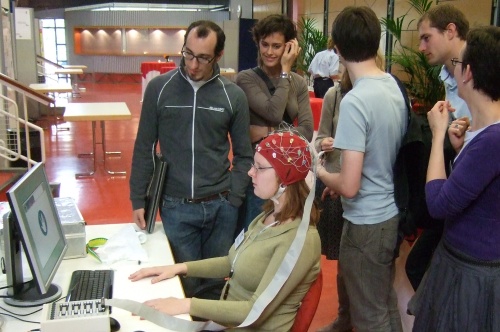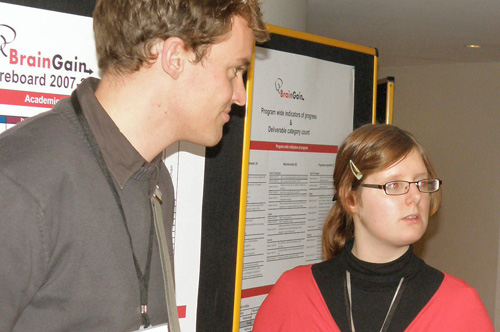Fun and Games was interesting and entertaining. It is great to see what other people are working on — there are always more touching grounds than you’d think on first sight. And of course because of the theme of this conference almost everything that is talked about has some fun factor — can’t go wrong there.
Andreas Bulling from ETH Zurich was kind enough to make some pictures of our demo setup and mail them to us. Thanks Andreas!

BrainBasher demo at International Conference on Fun and Games 2008 in Eindhoven
Karolien Poels from the Eindhoven Game Experience Lab was positioned next to us, with her work on the Game Experience Questionnaire. Very handy, as we also used that same questionnaire to evaluate different versions of BrainBasher.
As I was the test subject, unfortunately I missed the presentations about affect. I’ll just have to read up in the proceedings, but there were many interesting presentations I did see, like the one on EyeMote which uses EOG-based eye gestures for wearable control, but also the rather strange one about project ALICE on cultural computing. The presentation I enjoyed most was the one by Roderick Murray-Smith (who worked on the BCI Hex-o-spell, but also on many other interaction projects like the Stane), which was really an eye-opener to me on how it is possible to break free of established interaction patterns and think up something new that could work just as well or even better. Especially in the case of BCI, which is still so open to possibilities, it is important to try to free the mind to a more abstract way of thinking about interaction.
Now we’re already busy preparing for the next poster session and BrainBasher demonstration at the BrainGain consortium meeting at Bad Boekelo next week!


